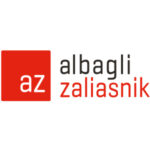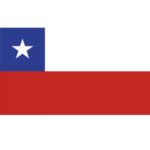

We invite you to read the publication of El Mercurio, a space where our associate Constanza Pasarin referred to the sanctions after misleading advertising on digital platforms.
From large companies such as Codelco to public figures such as journalist Mauricio Bustamante, this year they have been the subject of false publications on different digital platforms, whether social networks, search engines, among others.
This is what is known as cyber hoaxes, where cybercriminals use images of people or organizations to spread false content, in order to attract web users to scam them or extract their personal data.
The problem is that this practice is increasingly common, and not only are users affected through misleading or malicious advertising, but also those who turn out to be victims of the use of their image.
In this regard, Constanza Pasarin, lawyer of the Compliance/Tech Group of Albagli Zaliasnik, points out that in Chile the regulation of advertising, regardless of the medium through which it is disseminated, is established mainly in Law 19,496 or Consumer Law, which establishes standards for the protection of consumer rights.
However, it warns that in the context of social networks and platforms where misleading advertising is spread, the prosecution of those behind these practices continues to be a challenge. “This is due, in part, to the intermediary role these platforms play, as well as the geographic location of the product or service provider. If you are abroad, the consumer protection law would not be applicable,” says the lawyer, who is also a member of the legal, cybersecurity, artificial intelligence & women and technology table at ACTI.
Despite the above, it says that if you want to start a legal process against a company in Chile, you can always resort to the National Consumer Service (Sernac), which is the authority in charge of supervising and sanctioning those who promote misleading advertising. . The fines and compensation to consumers will depend on the circumstances of each case, but the regulations establish that they could reach up to 1,500 UTM or even 2,250 UTM (about $144 million, considering the value of the UTM of November of this year) in situations that affect the health, safety or environment of the population.
In addition, it indicates that the Council for Self-Regulation and Advertising Ethics (Conar), made up of private companies and institutions representing the advertising sector in the country, provides guidelines related to this issue, as well as the Electronic Commerce Regulation, which imposes obligations related to the advertising of products marketed through electronic commerce platforms and grants rights to consumers. Of course, they have no legal powers.
Digital stance
On the digital platforms side, Google maintains that they already have solid and clear advertising policies that they harshly apply to protect the ecosystem from fraud situations, reduce hate or misinformation, and stop inappropriate experiences for children. “We develop and enforce policies that help keep people and our partners safe when using our advertising tools,” they say.
And they add: “Our dedication to this cause is reflected in the actions we have taken. In 2022, we added or updated 29 policies for advertisers and publishers, expanded our financial services verification program, and strengthened our election-related ad policies, among others. This allowed us to remove more than 5.2 billion ads, restrict more than 4.3 billion ads, and suspend more than 6.7 million accounts of advertisers who violated our policies. “These efforts represent a significant increase over the previous year.”
Along these lines, Google indicates that it combines human reviews with automated systems based on artificial intelligence and machine learning, which helps them identify violations around the world and take quick and effective measures. “We understand that challenges continue to evolve in the digital world, and that is why we continue to invest in our policies and enforcement. This includes expanding our financial services certification program to protect people from scammers and prevent fraud. Additionally, we are committed to confronting sophisticated threats from malicious actors who attempt to evade detection.”
In the case of Facebook, Constanza Pasarin comments, for example, that the social network recently implemented new measures to combat misleading advertising on its platform. Under this policy, she explains, the company will examine negative reviews submitted by users about businesses that advertise on the platform, with the aim of preventing abuses against consumers.
The lawyer adds that, within this new policy, Facebook will allow users to file complaints related to companies that have experienced problems, either due to dissatisfaction with the quality of the promised products or offers that were not fulfilled as announced in the social network. What’s more, if a significant number of complaints are detected directed at the same company, the latter will be prohibited from publishing new ads on the platform. However, companies will be guaranteed the right to reply and the possibility of responding to complaints.
“For this reason, it is highly advisable to verify the reputation of the company that offers a product or service before making a purchase through a platform or social network, verify if the company is located abroad and examine reviews to avoid being left unprotected” , maintains Constanza Pasarin.
For more information you can contact :

Francisca Franzani | Compliance Group Director | ffranzani@az.cl




